Managed Beehives for Your Property in the Portland Area
Since 2010 The Best Bees Company has offered a unique, turnkey way for individuals and organizations to make a positive impact on the environment. Operating in Portland since 2015, Best Bees is now the leading beekeeping service in Portland and throughout the Portland metropolitan area.
We work with both residential and commercial clients, including the landmark Edith Green-Wendell Wyatt Federal Building, with its 18-story wall of vines.
Request a Phone Assessment
Find out if your property is right for bees


Services Provided in the Portland Area
We offer innovative solutions that can help bring your corporate sustainability programs to life. These include the highest standards on beekeeping, as well as developed workshops and programs that will engage your community — employees, guests, tenants, community leaders, and the public — in your sustainability work.
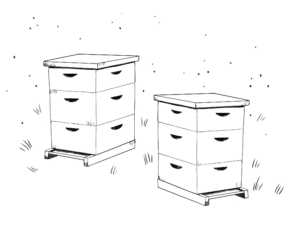
Commercial Services
Beekeeping for Your Residential Backyard
If you’d like to save bees, build a healthier environment, pollinate your garden, and have your own honey harvest, then our residential service is perfect for you! We offer turnkey beekeeping, honey harvesting, and DNA analysis designed for homeowners in a wide range of environments. Regardless of the size of your property — whether you garden on a balcony or have acres of land — we can install and manage one or several hives for you. .
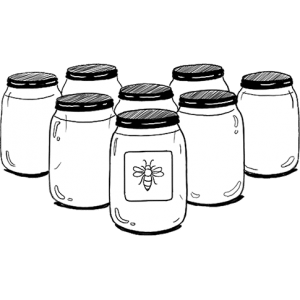
Residential Services
Beekeeping Education
We offer a number of educational programs at varying price points that have proven popular with commercial clients, schools, gardening clubs and organizations promoting sustainability.
Pre-recorded and live hive tours
Experience a guided tour as one of our bee experts takes you on a walk-through of your hive visits and inspections. Get a glimpse of the busy life of bees, and learn more on how to keep tenants engaged with their local environment. Live tours are available for up to 20 participants.
Meet an expert beekeeper
Participate in a beekeeper-led webinar and Q&A session. This virtual event is a great opportunity to learn about your bees through the lens of a beekeeper. We’ll discuss the data collected from your beehives, why bees matter, and what it's like to take care of your bees.
Virtual keynotes
Gain insight into the world of bees with our Chief Science Officer and Founder, Dr. Noah Wilson-Rich. Noah's knowledge of honeybee health and his passion for bee research will leave your audience spellbound, and with a wealth of new insight about our natural world. Our virtual keynote package includes signed copies of his book, The Bee: A Natural History.
We also offer free and open online programs, such as live meetings with beekeepers and educational webinars.
How Professional Beekeeping Works
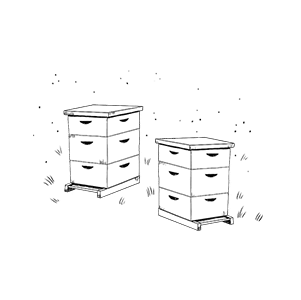
Installation
We help you choose an ideal location to establish one or more beehives at your home or workplace.
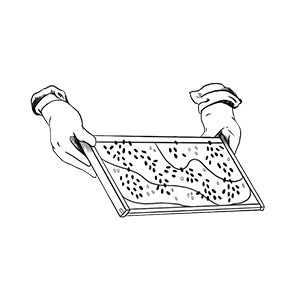
Maintenance
Our impassioned and experienced beekeepers service your beehives once a month, providing high-quality care and detailed reports.
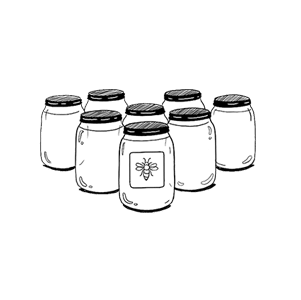
Harvesting
You keep 100% of the raw honey produced. We’ll handle the rest— small batch extraction and bottling with personalized labels.

Research
At every visit, we collect data and share it with our research partners to advance the science of beekeeping and improve the health of pollinators worldwide.
Safe
Our honeybees, Apis mellifera ligustica, are the most docile species of honeybees, making our hives extremely safe and the instance of stings very unlikely.
We situate our hives in safe locations, secured from animal intrusion and weather damage.
Secure
Our beekeepers have extensive experience working in densely populated areas in and around Washington, and are experts at safe hive placement on rooftops, balconies, and gardens. They’ll work with you to site your hives in visible, low-traffic areas, where you can safely enjoy observing your bees as they come and go.
Insured
Our beehives and beekeepers are fully insured for personal liability and damage. We can provide you with a Certificate of Insurance (COI) if needed.

Beekeeping Laws in Oregon and municipalities in the greater Portland area
The State of Oregon requires owners of 5 or more hives to register them with the Oregon State Department of Agriculture. The annual fee is $20/hive. The city of Portland allows 4 hives on any property, and up to 6 hives on properties of 10,000 square feet or more.
Hive owners in Portland must notify neighbors within 150 feet of their hives and must place a 6’ Flyaway barrier between their hives and the property line if their hives are situated within 10’ of the line. Regulations vary by municipality, so check with your local health department if you’re considering keeping bees.
All of our beekeepers are locally licensed to use pesticides and are certified for safe roof-top work.
Portland Service Area
We service hives in the city of Portland and throughout the metropolitan area, from Oregon City in the south to Gresham (where our apiary is located) in the east, including the following counties:
Columbia County
Washington County
Yamhill County
Clackamas County
Multnomah County
Clark County
What's Included
- Site Evaluation
- Hand-crafted, all-natural beehive equipment installed onsite
- A colony of docile honey bees (Apis mellifera ligustica)
- Monthly maintenance visits and follow up reports
- Advanced scheduling so you can alert your team
- Full-time customer service team available by phone or email
- Raw honey, harvested and bottled just for you
- Replacement colonies provided at no cost
- Fully insured professional service
About Local Honey
Honey production varies from colony to colony, depending on the strength of the Queen, the health of the hive and the availability of nourishment. New colonies tend to produce less honey than established ones. When there is a surplus of honey, we will harvest and jar it for you.
The composition and flavor of honey varies from hive to hive as well, depending on the floral species available to pollinate. This means that honey from your hive will have a unique profile. Tasting it, you’re tasting the composite of all the flowers your bees have visited! DNA analysis of Portland area honey shows the three most common species that bees are pollinating are rose (19.1%), chestnut (13.7%) and begonia (11.1%).
In our studies of honey DNA, we’ve found that honey from urban hives includes a much wider range of species—as much as eight times more than honey from rural and suburban hives!
Many of our residential customers are planting native species in their gardens to help both honeybees and native pollinators.
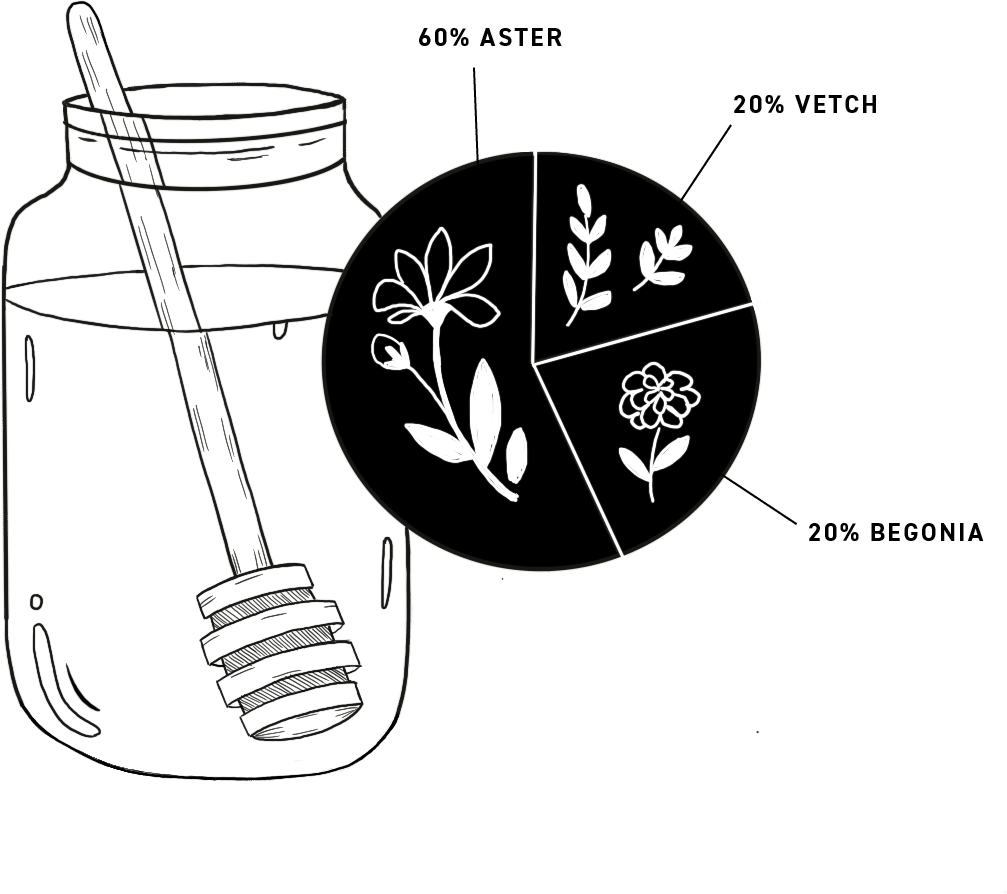
HoneyDNA
We pioneered the process of identifying the exact percentage of various pollen species found in honey through advanced genomic sequencing. Understanding where bees foraged reveals which plants best feed pollinators in the local environment.
Already Have a Hive?
At Best Bees, we’re proud to be a part of the local beekeeping community in every area in which we work. If not already a member of one of the area’s beekeeping associations, we encourage you to join either the Oregon State Beekeepers Association or Portland Urban Beekeepers.
Join our Citizen Scientist movement! Here are some ways you can participate:
- Plant more pollinator habitats on your property
- Use bee-safe pesticide alternatives
- Get involved in local and national lobbying
- Submit your honey for HoneyDNA
You can also post your data to bee Citizen Science programs like iNaturalist, The Great Sunflower Project, and Beecology Project.
We gladly share the learning from our research and our best practices with everyone. To learn more about the findings of our research work, visit https://bestbees.com/white-paper-resources/. To watch one of the TED Talks by our Founder and Chief Science Officer Dr. Noah Wilson-Rich, visit our Research page https://bestbees.com/research/ . Finally, to stay in the loop on our latest thinking, read our blogs at https://bestbees.com/blog/
Unique Challenges and Opportunities to Beekeeping in the Portland Area
The Portland area is blessed by a temperate climate and mild winters. There can, though, be periods of extreme heat in the summer, and with long-term drought in western states, extensive wildfires. While these can make working conditions difficult for our beekeepers, they report little damage from heat and smoke to bee health.
Winters in Portland tend to be cool and wet, and damp winter conditions can be a problem for bees. To protect them from the damp, our beekeepers often use bee “quilts”, which are canvas covers filled with wood chips, as well as moisture boards and insulation pads to help absorb moisture from the hives. During long periods of winter rain, bees can’t go out to forage, so our beekeepers check hives, and if honey stocks are low, provide supplemental feeding.
Winter survival rates for our beehives in Portland range from 40-70%. Varroa mite infestations are the primary cause of over-winter colony loss.
Portland offers pollinators a very diverse range of forage, especially within the city itself. In suburban and rural areas, blackberry and clover are common. Best Bees beekeeper Jeremiah Silverheart enjoys honey harvesting.
“The taste of the honey can really vary, depending on where the hives are and what was in bloom when the honey was produced,” he reports. “Honey produced during blackberry season tends to have a fruity taste.”
Silverheart has been beekeeping since 2019, and joined Best Bees this February. He enjoys the different challenges he faces every day, including catching a swarm of bees on a busy street in downtown Portland.
Bringing Innovative Beekeeping Practices to the Portland Area
With every hive serving as a datapoint, we’re able to observe bees in a wide variety of conditions and test alternative treatments in hives across the country. This allows us to introduce successful innovations to Portland and take the learning from our Portland hives to other cities.
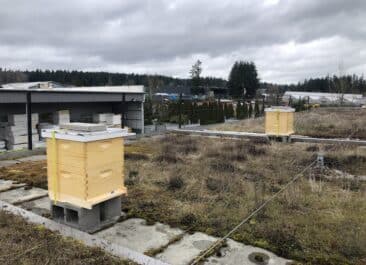
Frequently Asked Questions
We install and maintain honeybee hives on your property. Our expert beekeepers monitor the health of your bees and perform a variety of tasks throughout the year to help them thrive. At each visit, we also capture a range of metrics and share the data with renowned research partners to help the scientific community better understand the plight of pollinators. Towards the end of the season, we extract the honey and jar it for you.
About once per month for our Portland Area hives. If your bees are distressed and need extra support, supplemental visits are included. We coordinate each visit in advance and send a summary report afterward.
Only a few square feet! A beehive takes up as little as 2’ x 2’ x 3’. Our beekeepers need a few feet around the hive to access it, and the bees’ flight path will need to be unrestricted.
In the Portland area, we typically install hives when all threat of winter has passed, which is typically in March. Installations after June are accommodated on a case-by-case basis, depending on our inventory levels.
We fully guarantee the health of our bees and queens. If a colony dies, we’ll replace it with a healthy one from our own stock at no additional cost. While we hope each of our hives will thrive for years to come, the reality is that pollinators are still dying at an unprecedented rate. Even in Portland, with its mild winters, we can lose 30-60% of our hives each year.
Our Boston-based headquarters is staffed full time and available Monday through Friday during work hours by phone or email to answer any questions. When a colony requires extra attention, additional visits are made at no cost to you.
Yes, we provide a range of event support packages for our commercial clients. See Hive Programs for Commercial Customers for details.
Green roofs earn credits toward a building’s LEED (Leadership in Energy and Environmental Design) certification. Green roofs provide vegetation for water control, wildlife habitat, and better urban air quality. Honeybees can help maintain the green roofs that are becoming more common in big cities and thus contribute to a building’s LEED rating.
We service hives in the city of Portland and throughout the metropolitan area, south to Oregon City, and west to Gresham, including the counties of XXX, YYY and ZZZ.
We handle visit scheduling for you. We’ll contact you at least 72 hours in advance via email.

